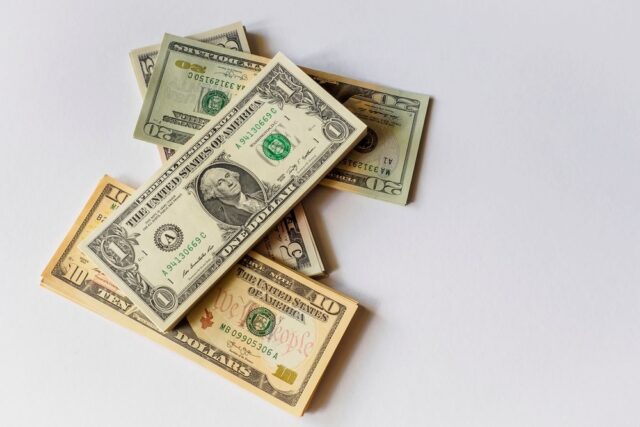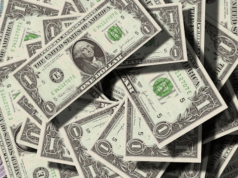
It’s a tough time for your wallet. As inflation surged to a 40-year high, the Federal Reserve made history by raising interest rates by three-quarters of a point for two months in a row.
While the central bank’s hikes are designed to cool white-hot inflation, it takes a while to bring it down. In the meantime, the increase will cause some debt payments and loans to go up at a time when budgets are already stretched thin.
Is your budget poised to snap? You wouldn’t be alone, but there are solutions.
People Are Saving Less Money Than at the Start of the Pandemic
New data from the Bureau of Economic Analysis shows the personal savings rate has crash-landed from its peak at the start of the pandemic. In May, people saved just 5.4 percent of their disposable income—a far cry from 2020’s impressive 33 percent.
Under these economic conditions, saving 5.4% of your disposable income may still feel like a win. But it may not be enough to ensure you’re ready for the next economic downturn. In fact, few people are prepared.
According to one report, more than half (56 percent) of Americans don’t have enough savings to handle an unexpected expense that costs $1,000 or more.
While most would turn to the credit cards in their wallets, others say they would have to borrow short-term personal loans online from a financial institution like MoneyKey to cover any unexpected expense.
In unexpected emergencies, people may need to borrow. Now that the Federal Reserve has raised interest rates, taking out credit may cost more than before. Even existing debt may be affected if you have a variable rate, as this condition means the interest you pay rises and falls with the market.
How to Manage Borrow Less and Save More
With the cost of borrowing on the rise, now’s the time to hit pause on borrowing. But you can’t do that without having enough savings to cover the unexpected, and that relies on reducing your spending.
Is curbing your spending in the midst of record-high inflation possible? It’s hard, but it is possible with these tips.
Use a Budget to Understand Your Finances
Now isn’t the time to wing it. You need to know exactly where every dollar you earn goes at the end of the month. This insight ensures you’re spending your money wisely. And if not, it gives you a chance to spot bad spending habits that make your life harder.
Use your budget to make a list of your priorities. These are the things you must pay every month, no matter what, like rent, bills, minimum payments on loans and lines of credit, and groceries. Anything else is an opportunity to save.
Cut the Fat
Once you have your priorities flagged, look at the expenses that didn’t make the cut. Can you live without them? Avoiding unnecessary splurges can help free up a surprising amount of cash you can put into savings.
If you aren’t sure what qualifies, here are some ideas of what to eliminate:
- A Gym Membership: Work out at home or outside using free fitness videos
- Takeout: Replace expensive ready meals and carryout with homemade food
- Subscriptions: Cancel extra streaming services and other subscriptions that you don’t use
- Clothing: Learn how to make do with the clothes already in your closet
Focus on Variable Expenses
If you’re lucky, slashing discretionary expenses gives you enough breathing room in your budget. But if not, don’t panic. Variable expenses offer another route towards savings.
Variable expenses include groceries and gas that change month to month depending on how much you eat or drive. While you can’t cut them out entirely, you have control over how much you spend.
- Groceries: Consider using coupon and rebate apps to reduce what you spend at the till. Meal planning around weekly deals and low-cost items can also help you lower food bills and eliminate food waste.
- Fuel: Drive less often by walking, carpooling, or taking transit. Some gas stations offer loyalty credit cards, but only use them if you can pay off what you owe every month.
Negotiate Your Essentials
Any essential expense has to remain in your budget because it’s necessary for your health or safety, but you might be able to reduce what your essentials cost through negotiation. Depending on your skills and your creditor’s policies, you might be able to switch to a cheaper package, adjust your payment schedule, or reduce what you owe altogether.
Don’t Ignore Debt Payments
You’ll want to pay down any lines of credit or installment loans with variable rates, as the interest they charge may keep rising this year. Juggling a savings goal and debt payment can be challenging, but it’s worth it if you eliminate these expenses from your budget. Once you strike debt from your name, you’ll have more cash to save.
The Takeaway:
With inflation rates hitched to runaway inflation, the remainder of the year is going to be a tough one on your wallet. You can’t expect to put your head in the sand and wait for it to blow over. While you might get lucky, this strategy leaves you vulnerable to the unexpected.
Remember these tips as you revisit your budget and cut spending. Your hard work can help you manage inflation without requiring short-term personal loans.


































